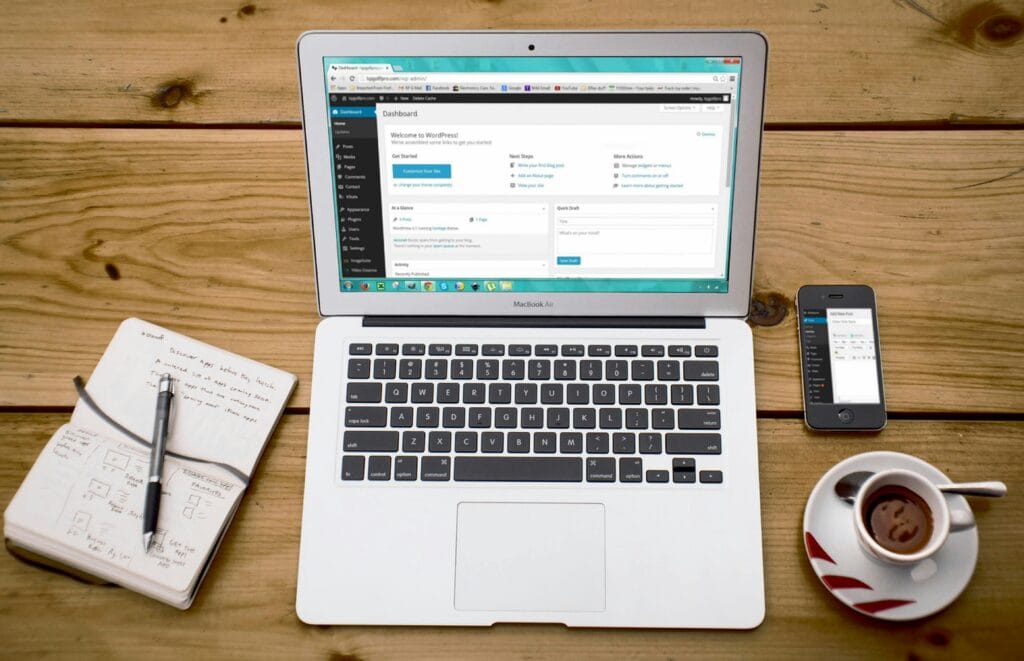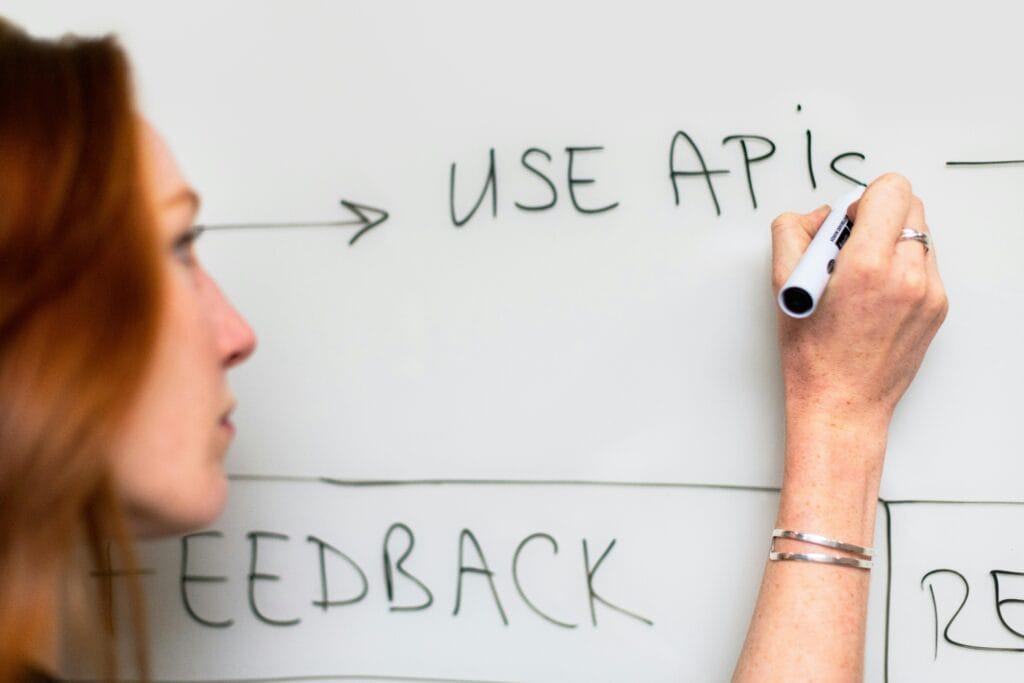Your website is your virtual storefront and your 24/7 brand ambassador. A well-designed website is crucial for all users in the digital age. It’s a powerful tool that engages visitors, builds trust, and drives conversions. It’s often the first interaction a potential customer has with your business, making it crucial to create a positive and lasting impression.
However, the abundance of website design agencies can make choosing the right partner feel like navigating a maze, with each agency boasting unique strengths, styles, and pricing structures. How do you sift through the options and find the perfect fit for your business needs and goals?
Today’s blog intends to be a comprehensive guide to finding the right website design agency for you. We have curated a list of essential questions to ask potential design agencies, empowering you to make informed decisions. Without further ado, let’s explore how to ensure a smooth and successful website design process that results in a site that truly reflects your brand and delivers tangible results.

Beyond the Portfolio: Questions to Truly Understand a Website Design Company
Choosing a web design agency is more than just evaluating pretty pictures. It’s about finding a partner who understands your vision and can bring it to life in a way that resonates with your audience. Here are some insightful questions to ask:
1. “Beyond Websites: What are your passions and interests?”
This question delves into more profound and personal subjects than professional capabilities. It helps you gauge their curiosity and creativity and whether their passions align with your industry or target audience. A design agency that is genuinely excited about your field will likely bring more enthusiasm and innovative ideas.
2. “Where Does Your Expertise Shine?”
Every agency has its strengths. Some excel at e-commerce platforms, others at visually stunning portfolios, and some specialise in complex web applications. Understanding their core areas of expertise ensures they have the skill set and resources to execute your vision.
3. “Walk Me Through Your Design Process”
This question shows their workflow and how they collaborate with clients. Do they prioritise communication and feedback? How do they handle revisions and ensure client satisfaction? A transparent and collaborative process is crucial for a successful project.
4. “What’s Your Client Collaboration Style?”
Some agencies adopt a hands-on approach, involving clients at every step. Others prefer to present fully-formed concepts for feedback. Understanding their style helps you determine if it aligns with your preferred level of involvement.
5. “How Do You Make Clients Feel Heard and Valued?”
Beyond just delivering a website, how does the agency prioritise the client experience? Do they offer dedicated project managers, regular progress updates, and open lines of communication? Feeling heard and valued throughout the process fosters trust and confidence.
6. “What Sets You Apart?”
The web design landscape is competitive. What makes this agency unique? Do they have a specific design philosophy, niche specialisation, or exceptional client service track record? Understanding their differentiators helps you assess their value proposition and how it benefits you.
7. “Can You Share Examples of Projects That Pushed Your Creative Boundaries?”
This question reveals their willingness to innovate and take on challenges. It also showcases their ability to think outside the box and deliver unique solutions.
8. “How Do You Stay Ahead of the Curve in Web Design Trends?”
The digital world evolves rapidly. A good agency invests in continuous learning and stays abreast of the latest design trends and technologies. Their answer will reveal their commitment to delivering cutting-edge solutions.
9. “How Do You Measure the Success of a Website?”
Aesthetics are essential, but a successful website achieves its business objectives. Whether generating leads, increasing sales, or improving brand awareness, understanding their approach to measuring success ensures they align with your goals.
10. “What’s Your Ideal Client Relationship?”
This question needs to include their long-term vision. Do they see themselves as a one-off service provider or a strategic partner invested in your ongoing success? A long-term relationship can be invaluable as your business grows and your website needs to evolve.
By asking these insightful questions, you’ll better understand the agency’s culture, values, and capabilities. You’ll also be better equipped to choose a partner who delivers a stunning website, shares your passion, understands your vision, and helps you achieve your business goals.
Questions about Design, Development, and Accessibility (And Why It Matters)
The design and development phase is where your website’s vision takes shape. Asking the right questions here can help ensure that the final product is visually appealing but also functional, user-friendly, and accessible to everyone.
1. Unique Builds: “Would You Recommend a Custom Design or a Template?”
Why it matters: A custom design offers a unique brand identity that distinguishes you from competitors. Templates can be faster and more cost-effective but may limit flexibility and uniqueness. Understanding the agency’s approach will help you balance your desire for a distinctive site with budget considerations.
2. Responsive Design: “How Will You Ensure My Site Looks Great on All Devices?”
Why it matters: Many users access websites via mobile, so a responsive design is crucial. It ensures your site adapts seamlessly to different screen sizes, providing an optimal viewing experience for all users. Inquire about the agency’s specific techniques and testing processes for achieving responsiveness.
3. SEO Integration: “How Will You Build My Site with Search Engines in Mind?”
Why it matters: Search Engine Optimisation (SEO) is critical to improving your site’s visibility in search engine results pages (SERPs). A well-optimised site attracts more organic traffic, increasing brand awareness and potential customers. Ask the agency about their specific SEO strategies and how they’ll integrate them into the design and development process.
4. CMS Training: “How Will You Empower Me to Manage My Site’s Content?”
Why it matters: A Content Management System (CMS) like WordPress or Drupal empowers you to update and manage your website’s content without needing technical skills. Inquire about the agency’s recommended CMS, their level of training and support, and any ongoing maintenance packages they offer.
5. Website Accessibility: “How Will You Ensure My Site is Inclusive?”
Why it matters: Website accessibility means designing and developing your site so that people with disabilities can perceive, understand, navigate, and interact with it. This ethical consideration is hugely important and also represents your business. Ask about the agency’s commitment to accessibility standards (like WCAG) and how they’ll implement them in your project.
Additional Questions to Consider:
- “Will you be using any specific technologies or frameworks for development?” Understanding their tech stack helps ensure compatibility and future scalability.
- “How will you handle website security and protect against potential threats?” Website security is crucial to safeguarding your data and users’ information.
- “What is your process for testing the website before launch?” Thorough testing ensures a smooth user experience and helps identify bugs or issues before going live.
- “Will you provide documentation or guidelines for future updates and maintenance?” Clear documentation empowers you or another developer to make changes to the site in the future.
- “How do you approach website performance optimisation to ensure fast loading times?” Site speed affects user experience and SEO rankings, so understanding their optimisation techniques is essential.
By thoroughly exploring the design and development process, you can ensure that your website looks fantastic, functions flawlessly, ranks well in search engines, and is accessible to all users. Remember, a well-designed and developed website is an investment in your business’s future success.
Budgeting and Timing: Questions to Keep Your Project on Track
Discussing cost and timeline upfront is essential for a smooth website design project. Clear expectations and transparency regarding finances help prevent misunderstandings and ensure your project stays on track.
1. Pricing Structure: “Can You Provide a Detailed Breakdown?”
A transparent pricing structure outlines all costs, from design and development to hosting and ongoing maintenance. This helps avoid unexpected fees and ensures the project aligns with your budget. Ask for a breakdown that includes:
- Hourly rates or fixed project costs
- Costs for additional features or functionalities
- Payment schedule and terms
- Any potential additional expenses
2. Project Timeline: “What’s the Estimated Completion Date?”
Setting a clear timeline ensures your new website launches when needed. Understanding the estimated duration allows you to plan marketing and other business activities accordingly. Ask for a timeline that includes key milestones and deliverables, such as:
- Initial design concepts
- Content development and integration
- Development and testing phases
- Launch date
3. Contingency Plans: “What If the Budget or Timeline is Exceeded?”
Even with the best planning, unforeseen challenges can arise, potentially impacting the budget or timeline. Understanding the agency’s approach to such situations helps manage expectations and avoid disputes. Ask about:
- Their process for addressing scope changes or unexpected issues
- How they communicate any potential delays or cost overruns
- Whether they have a contingency plan in place to mitigate risks
Additional Questions to Consider:
- “Are there any payment milestones tied to specific deliverables?” This ensures you only pay for completed work and provides leverage if issues arise.
- “What is your policy on revisions and change requests?” Understanding their revision approach helps avoid scope creep and additional costs.
- “Do you offer any guarantees or warranties on your work?” This provides reassurance and demonstrates their confidence in the quality of their services.
- “What happens if we need to terminate the project early?” Clarifying termination terms protects both parties if the project doesn’t proceed as planned.
Addressing cost and timeline concerns upfront establishes a solid foundation for a successful project. Open communication and transparency regarding finances help build trust and ensure you and the agency are on the same page.
Remember, a well-planned project is more likely to stay within budget and meet deadlines, delivering a website that fulfils your business objectives on time and within your financial constraints.

Staying Connected: Questions about Communication and Support
Effective communication and ongoing support are vital for a successful website design project and beyond. Establishing clear lines of communication ensures you stay informed and can promptly address any questions or concerns.
Point of Contact
Ask who your primary contact person will be. A dedicated contact streamlines communication and ensures your questions are answered promptly. Inquire about their role, experience, availability, preferred communication methods, and typical response times.
Project Updates
Find out how often you’ll be informed about the project’s progress. Regular updates keep you involved and allow you to provide feedback. Ask about the frequency and format of updates and if you’ll have opportunities to review work in progress.
Ongoing Support
Websites need maintenance and updates even after launch. Ask about the agency’s post-launch support packages, pricing, types of support offered (e.g., technical help, content updates, security), and response times for support requests.
Additional Questions to Consider:
- “Will you provide training on how to use the website’s features and CMS?” Empowering you to manage essential updates can save time and money in the long run.
- “Do you offer any website hosting or domain management services?” Bundling these services with the agency can simplify management and streamline support.
- “What is your process for handling website security issues or vulnerabilities?” Understanding their security protocols helps protect your site and user data.
- “Do you offer website analytics or performance tracking services?” Data-driven insights can help you measure your site’s success and identify areas for improvement.
You foster a collaborative and transparent relationship with your chosen agency by prioritising communication and support. This leads to a smoother project experience and ensures your website remains healthy and effective long after launch.
Final Thoughts
Choosing the perfect website design agency is an investment in your business’s online success. By asking insightful questions about their experience, design process, costs, communication style, and support offerings, you’ll gain the knowledge needed to make an informed decision. Remember, a well-designed website is more than just a tick-box exercise—it’s a powerful tool that can drive engagement, generate leads, and elevate your brand.
Use this guide as a roadmap during your agency selection process, and don’t hesitate to get in touch if you have any further questions or need personalised assistance. We’re here to help you find the ideal partner to bring your online vision to life!






